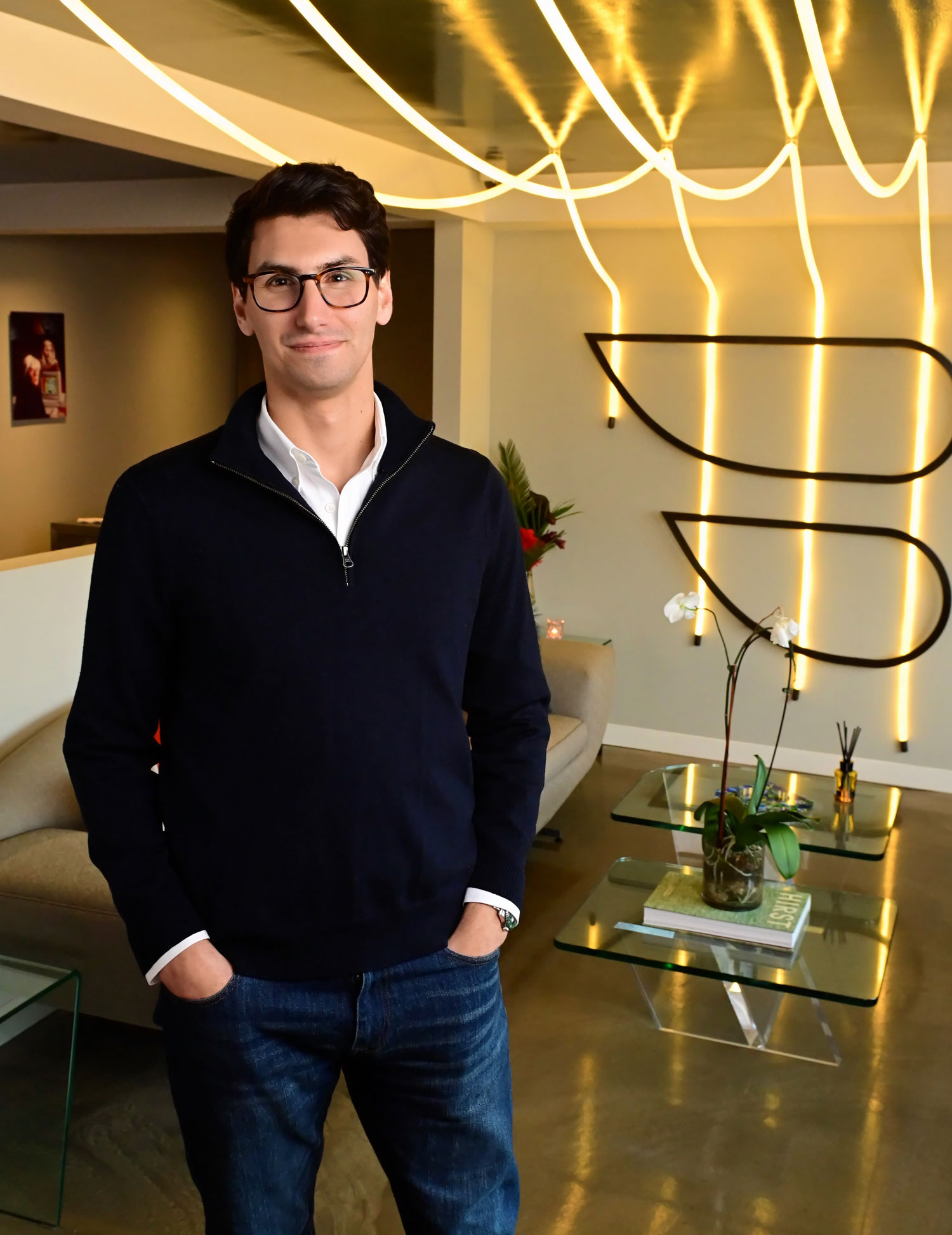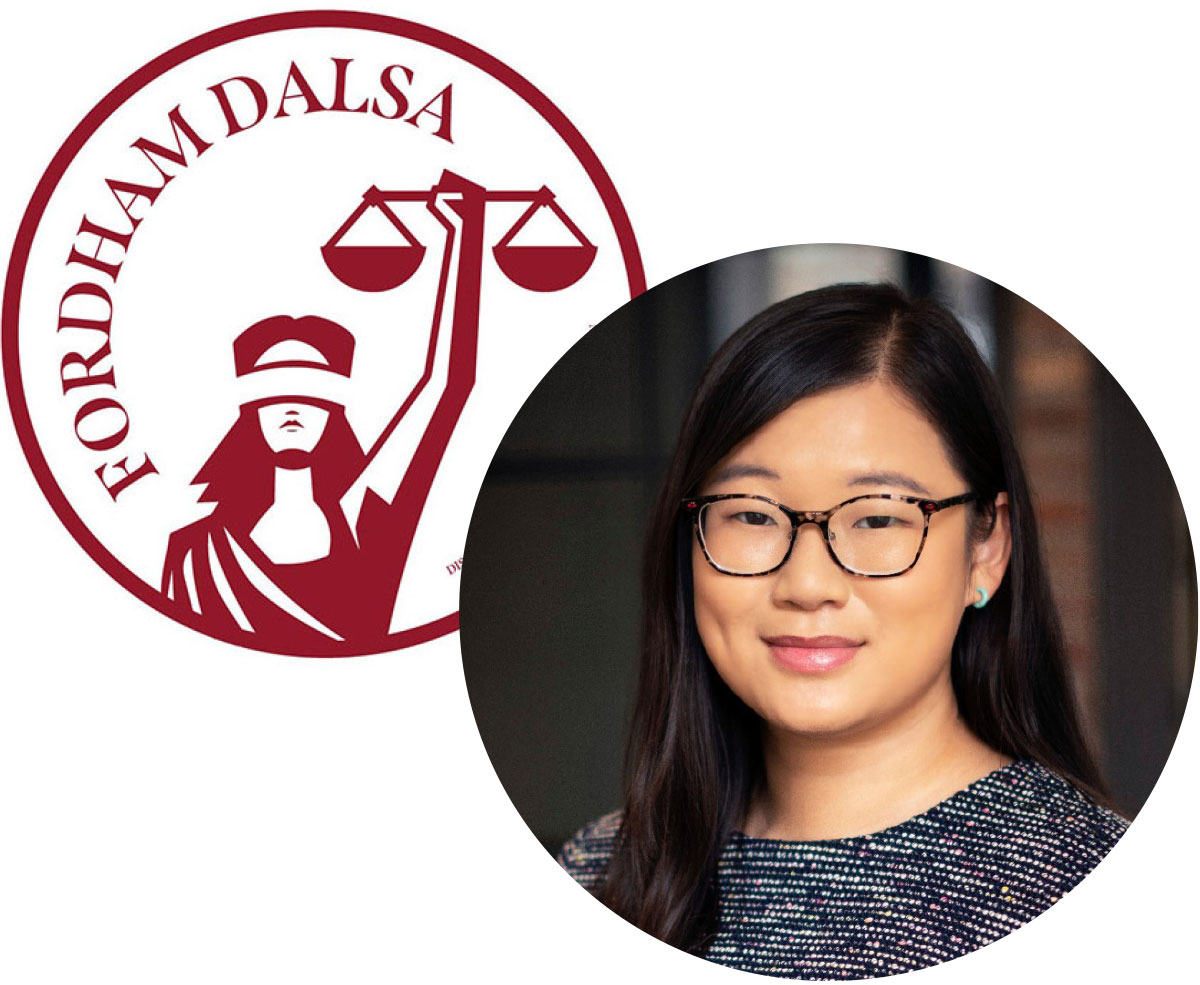Making Law School Possible for Every Type of Learner

It didn’t seem as if law school would be in the cards for Stephen Cugliari, who was diagnosed with attention deficit hyperactivity disorder (ADHD) at age 5. “My family was absolutely whipsawed when I told them I wanted to apply—it’s the last option you’d expect for someone who has difficulty focusing,” recalls the 29-year-old.
“I was able to get through high school and even college, but law school was a whole different animal,” says Cugliari. “I had to focus for nearly two hours in lectures. I could barely concentrate for half that time, let alone take notes. Those things may come easily for some people, but it’s incredibly difficult for those of us with ADHD.”
Out of His Element
Though he was thrilled to be at Fordham Law, Cugliari quickly felt overwhelmed by the academic pace, despite professors who offered to take time to work with him individually. “So much of law school comes from what is taught in class, which can be difficult to absorb if you can’t always keep up, or even focus on what’s being discussed,” he says.
Cugliari is the first to say that his professors were “incredibly helpful.” Nevertheless, he felt self-conscious about his struggles. Like many of the estimated 8.5 percent of children and 2.5 percent of adults with ADHD, Cugliari has a hard time with short-term recall. “Even under the best of circumstances, it can be very difficult for me to remember and digest something I’ve just heard or read,” he explains. “Put me in a lecture hall, and it’s a recipe for disaster.”
Cugliari was able to get some accommodations, like recording lectures so he could review them later. But he persistently worried that his classmates would judge him.
Once, when he mentioned to another student that he’d been given extended time on tests due to his diagnosis of ADHD, “they looked at me like I’d gotten an unfair advantage,” he recalls. “I got the sense that other students didn’t view ADHD as a real problem. They thought it was a fake disability for people to get Adderall prescriptions to get ahead.”
It wasn’t an easy experience.
“I don’t think many people with learning disabilities get to law school,” Cugliari says. “And once you’re there, there’s this self-imposed pressure not to reach out for help, that if you do, you’ll be perceived as less capable of doing the work than peers who don’t have a disability.”
After his first semester, Cugliari considered dropping out. But then he thought about his father, who died when Cugliari was in high school, and a beloved aunt who died a few years later, and decided to stay the course. “I’m not a quitter,” he says. “Overcoming those two deaths took a lot of strength. But I had to fight back against the stigma.”
Following in His Father’s Footsteps
Things turned a corner the second semester of Cugliari’s 2L year. He was searching for summer internships, when one caught his eye: an opportunity at Blade Urban Air Mobility, a technology-powered, global air mobility platform focused on providing time-efficient alternatives to ground transportation.
“My dad was an aerospace engineer, and I’d grown up going to aviation shows with him throughout the world,” Cugliari recalls. “When I saw the listing, it happened to be the 10th anniversary of his death, and it just seemed like a sign.” He got the internship and continued working there all through his third year of law school, then accepted a permanent position after he graduated.
Back then, the job helped him define his interests, including realizing that he didn’t want to be a practicing attorney. “I loved that my professors encouraged me not to feel pressure to go into law, but to really use the knowledge and skills I’d gained to focus on what I really wanted to do,” he says. “And there was a tremendous amount of freedom in that decision: I felt like I could take the classes I wanted to, versus the ones that would help me pass the bar exam,” he says.
He especially loved his experiential coursework in commercial and real estate drafting. “I felt as if I was learning skills that would help me segue into the broader corporate world,” he explains. “Those classes and the other skills I gained at Fordham Law allowed me to be part of the deal team at Blade that closed the transaction and took our company public in 2021. Even when I’m doing something not explicitly related to law, I feel like my legal education serves me well.”
Paying It Forward
That’s the kind of positive outcome he wants other law students with disabilities to experience, which is why, after graduating, Cugliari gifted Fordham with a five-year recurring grant from his family’s foundation, which he runs alongside his mother and uncle. “My last year at Fordham, I reached out to the development office and shared some ideas about what could be done to help make things easier for future students with disabilities,” says Cugliari.
One suggestion: to increase Fordham Law’s focus on disability access. “When students need to request accommodations, like more time on exams, they usually go through the director of student affairs—at most law schools, that’s the only point person,” explains Cugliari. “I think more students would be willing to come forward and ask for help if there was someone there specifically for that purpose, who understood their issues.”
Thanks to Cugliari’s grant, additional professional development and training have now been added to assist Fordham’s current staff. And, as demand fluctuates from year to year, Fordham will utilize these resources to hire specialized consultants who can provide personal support for students with learning differences to address this growing need.
This is all welcome news to Stephanie Diu ’23, who founded the Disabled and Allied Law Student Association (DALSA) in 2020, to provide peer support for students with disabilities. Diu, who has hearing loss, was motivated to launch DALSA soon after starting at Fordham. “Even with a hearing aid, it’s very difficult to hear lectures, especially with masks,” she says.
“Unless someone is facing me when they speak, it’s impossible to catch everything.” Diu worked closely with Director of Student Affairs Abel Montez to make sure she got everything she needed. “But it occurred to me that there might be other students with disabilities who didn’t know how to advocate for themselves, or felt overwhelmed by doing it alone,” she explains. “There needed to be a space for law students with disabilities to find one another.”

Together, Virtually and on Campus
Diu, with support from the Law School administration, sent out an email to the entire student body inquiring about interest in starting a group. Several students immediately responded. “First it was just a group chat, but soon we had close to 50 members,” Diu says. Today, DALSA has monthly meetings with Kimathi Gordon-Somers, assistant dean of student affairs and diversity, and Kamille Dean, Fordham’s newly appointed director of diversity, equity, and inclusion, to share concerns and offer their perspective. (See what other kinds of work Dean and Gordon are doing in “No Longer the Onlys,” p. 24.) “It’s made our work a lot easier to have so much support from the administration,” stresses Diu.
Last year, the group hosted casual events, such as a virtual holiday gathering, as well as a spring educational event on how to request accommodations for the bar exam. DALSA is also focused on building up its alumni network, so students can connect with other Fordham Law graduates.
“
We have students in DALSA who are on competition teams, and on law journals. They’re not successful despite their disability, they’re successful because their disability has allowed them to foster strengths in other areas that help them in all aspects of their lives. That’s why we want to destigmatize disability.
Stephanie Diu ’23
“We all grapple with how to disclose our disabilities to potential employers, and what it’s like to practice law with a disability,” she says. “It’s so helpful for us to hear from people with more life experience.”
The transition from law school to the working world has been smooth, says Cugliari, now director of corporate development and legal at Blade. As for coping with his ADHD, “I’ve been very open about it with colleagues,” he says. It helps that, partly because of his experiences at Fordham Law, he has gained better self-awareness and understanding of what strategies work for him, like arriving at work by 7:30 a.m. to put in a couple of quiet hours, so it’s easier to stay focused. “Over time, I’ve learned to play to my strengths,” he says. “When I’m under the gun, I can hyper focus, and I think I’m more resilient, because I’ve always had to work harder to learn new things.”
A Need for Speed
Besides brokering deals, Cugliari is also passionate about race car driving, courtesy of his late aunt, who introduced him to the sport at age 16 when she signed him up for a high-performance driving school at the legendary Lime Rock Park racetrack in Connecticut. After a few lessons, he was hooked. “I struggled so much in school that driving became a real outlet,” he says, noting that many people with ADHD crave adrenaline rushes. He began racing competitively at the amateur level in 2017, quickly moving to professional in 2018. In October of 2021, he picked up back-to-back wins with his team, Accelerating Performance, at Sebring International Raceway in Florida.


“The sport has provided me with so many soft skills,” he says. “When you’ve got other drivers breathing down your neck, waiting for you to make a mistake, it teaches you how to stay calm and think on your feet.” Success stories like Cugliari’s are exactly what law students with disabilities need to hear, says Diu. “We have students in DALSA who are on competition teams, and on law journals. They’re not successful despite their disability, they’re successful because their disability has allowed them to foster strengths in other areas that help them in all aspects of their lives. That’s why we want to destigmatize disability.”
Cugliari agrees. “My brain may be wired differently, but that doesn’t mean I’m any less capable than those around me,” he says. And while others may view ADHD as something to hide or get over, Cugliari has learned to see it in a new way. “To me, it can be an advantage.”